11 things you'd forgotten about 1989
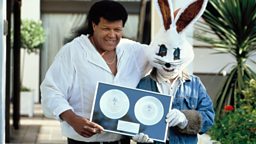
This Friday is 1989 Day on BBC 6 Music, with presenters including Shaun Keaveny, Lauren Laverne and Radcliffe and Maconie celebrating what was a momentous period for music - and not just because it was the year Taylor Swift was born. Rave and hip-hop were infiltrating the mainstream, Soul II Soul spearheaded a vibrant new wave of UK soul, and Madchester heroes Happy Mondays and The Stone Roses had everyone bulk-buying flares and bucket hats. Pixies’ Doolittle, The Cure’s Disintegration and New Order’s Technique were among the landmark albums released this year.
Also in 1989, Tim Burton reinvented the superhero movie with Batman, while Seinfeld and The Simpsons made their TV debuts. Yet Eastern Europeans rushing to embrace Western pop culture following the collapse of the iron curtain were to find it wasn’t all cult comedy and hip alternative rock. Graeme Virtue looks back at some of the big hits and cringeworthy cultural moments of 1989 that hindsight has conveniently swept under the carpet.
-
![]()
11 things you'd forgotten about 1994
Celebrating the year of Shampoo, Stiltskin and Don't Forget Your Toothbrush.
1. Jive Bunny
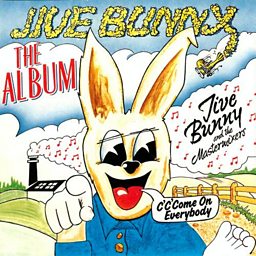
In 1989, albums like De La Soul’s 3 Feet High And Rising and Beastie Boys’ Paul’s Boutique elevated sampling to an art form, repurposing old records with flair and panache. In the UK, though, the kings of cut’n’paste were Jive Bunny & The Mastermixers – a father and son team from Rotherham – who ruthlessly telescoped rock’n’roll golden oldies into irresistible medleys. After the act achieved three No 1s in quick succession, Jive Bunny: The Album would go on to become the 14th biggest selling record of 1989, although it is surprisingly difficult to find anyone who will admit they bought it.
2. Fun House
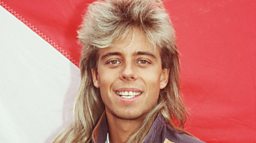
Ask anyone in their mid-30s what TV they were watching in 1989 and they will likely namedrop Press Gang, the beloved teen newspaper drama from future Doctor Who showrunner Steven Moffat that tackled hot-button topics with wit and warmth. It wasn’t the only hit Children’s ITV programme to launch that year, however: there was also a real crazy show where anything goes. Fun House was the garish gunge-fest presided over by mulleted DJ Pat Sharp where teams of young contestants tackled messy physical challenges before a climactic grand prix in primary-coloured go-karts. Sharp even enjoyed a Top 10 hit in 1989 (alongside fellow radio DJ Mick Brown) with a tinny version of disco standard I Haven't Stopped Dancing Yet. Watching Pat's ungainly moves in the video, one was tempted to respond: Can You Please Stop Dancing Soon, Though?
3. Look Who's Talking
Born on the Fourth of July, Drugstore Cowboy and Do the Right Thing were among the most notable cinema releases of 1989: daring, socially-conscious dramas unafraid to examine weighty themes. None of them, though, earned anywhere near as much dosh as Look Who’s Talking, a syrupy, cynical comedy that featured Bruce Willis as the voice of a wise-cracking baby. At least they didn’t call it Cry Hard.
4. The Reynolds Girls
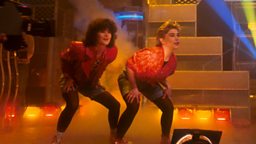
With its cheeky lyrical dismissal of Fleetwood Mac, the Reynolds Girls’ lone hit I’d Rather Jack thumbed its nose at radio stations and DJs who favoured classic rock over contemporary pop. The track, produced by prolific late-80s hitmakers Stock, Aitken and Waterman, cracked the top ten in April 1989. But after that first flush of success, Liverpudlian siblings Linda and Aisling Reynolds retreated into obscurity. In the long-term, Fleetwood Mac’s victory proved to be crushing.
5. Aspects of Love
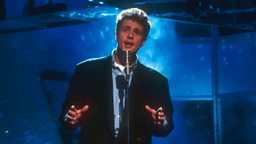
This Andrew Lloyd Webber musical - a project that took a decade to reach the stage - gave Michael Ball his signature hit Love Changes Everything. While it was a phenomenon in the UK, with the original cast recording reaching the top of the album charts and ending 1989 as one of the best-selling records of the year, its romantic charms wilted abroad. A bumpy transfer to New York resulted in it becoming one of the most notorious Broadway flops in history.
6. Dooby Duck’s Disco Bus
A wobbly-headed animal puppet miming along to Sinitta’s So Macho may not sound like must-watch TV but the bewildering Dooby Duck’s Disco Bus cast a powerful spell over the UK’s youth when it debuted in 1989. Dooby Duck himself was an affably geezerish music promoter with a mobile disco crammed into a bus (later a truck). Despite the contemporary soundtrack, the crude puppetry style was notably retro, evoking the innocent, loose-limbed hijinks of Bill and Ben the Flowerpot Men.
7. Talking Pages

John Cleese brought his blustery, highly-strung Basil Fawlty persona to a popular 1989 ad campaign for Talking Pages that featured escalating scenes of domestic disaster. In the age of smartphones and Siri, the idea of ringing a live human operator and asking for recommendations for goods and services seems almost unbelievably quaint. Why not send me a fax while you’re at it?
8. Weekend at Bernie's
It must have seemed like a good idea at the time. In this wayward movie comedy, two panicking pals go to extraordinary lengths to make it seem as if their recently deceased boss is hale and hearty during a swanky party at his luxury Hamptons beach house. Poor old Bernie’s corpse is desecrated in an escalating series of absurd situations - a staple gun is involved - representing a distinct low point for both star Andrew McCarthy’s career and Hollywood in general. Scorned by critics at the time, it has since developed a cult reputation as a bad taste classic.
[Warning: third-party content may contain ads]
9. Capital City
Over the course of the 1980s, the popular image of a banker slowly transformed from a cautious, buttoned-up, bowler-hatted gentlemen to a braces-wearing yuppie bellowing buying orders into a brick-sized mobile phone. High-profile 1989 TV drama Capital City - the subject of an enormous ad spend by ITV and starring a young Jason Isaacs - was set amid the newly glamorous world of investment bankers. However, after an aggressive, headline-grabbing start, it suffered its own audience crash and its cultural stock never recovered.
10. Fairground Attraction

Beamed live from the Royal Albert Hall, the 1989 Brit Awards came to define car-crash TV thanks to a series of technical malfunctions and the agonising lack of chemistry between mismatched hosts Samantha Fox and Mick Fleetwood. Amid its notorious reputation, what’s often forgotten is that folk-pop outfit Fairground Attraction walked away with both the best single and best album awards, a rather winsome way to symbolise such a tumultuous year.
11. Stefan Dennis
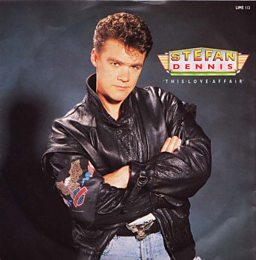
Thanks to the Stock, Aitken and Waterman-powered success of Kylie Minogue and Jason Donovan, the fictional Melbourne suburb of Erinsborough briefly became the world’s largest exporter of pop in the late 1980s. Stefan Dennis - AKA Lassiter’s mogul Paul Robinson, always a man with a nose for a business opportunity - jumped on the bandwagon with his growling semi-hit Don’t It Make You Feel Good. Kylie became a global superstar while Stefan eventually slunk back to Ramsay Street, returning to Neighbours in 2004 where he remains to this day.

